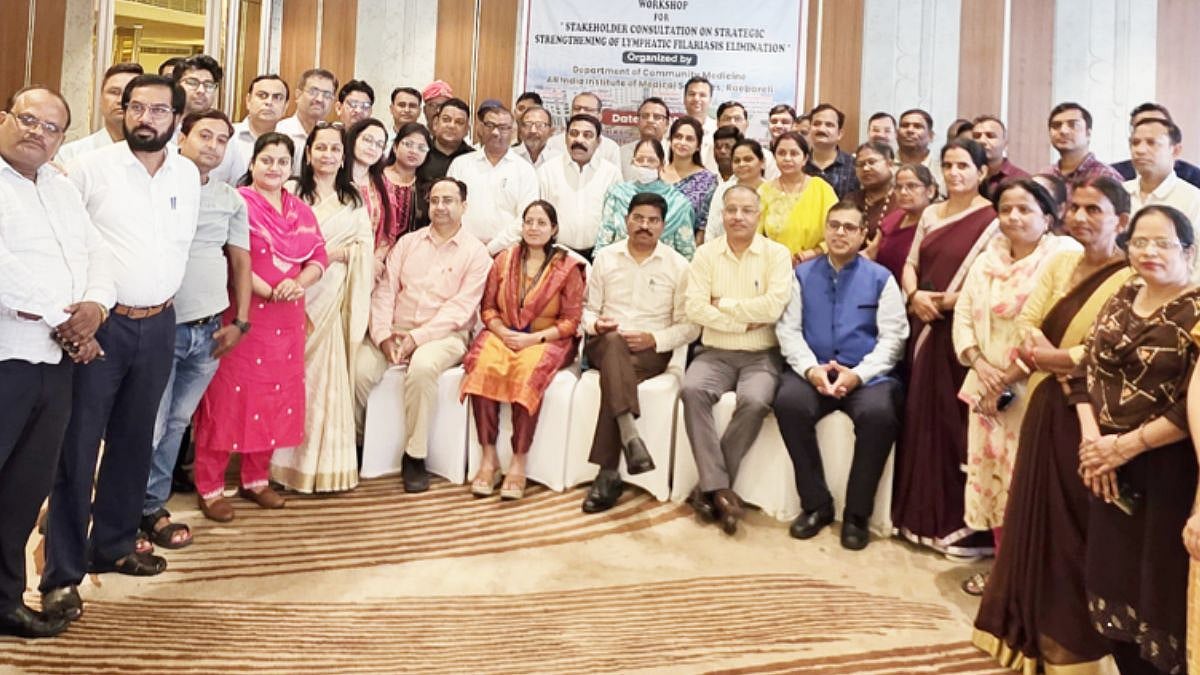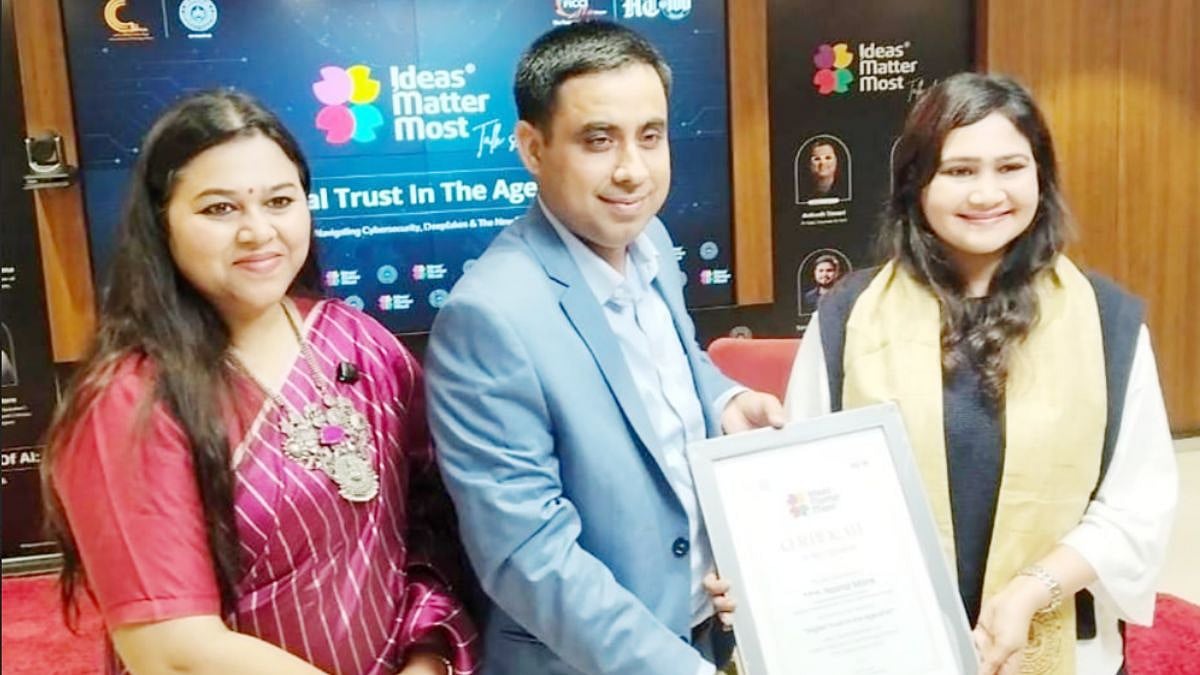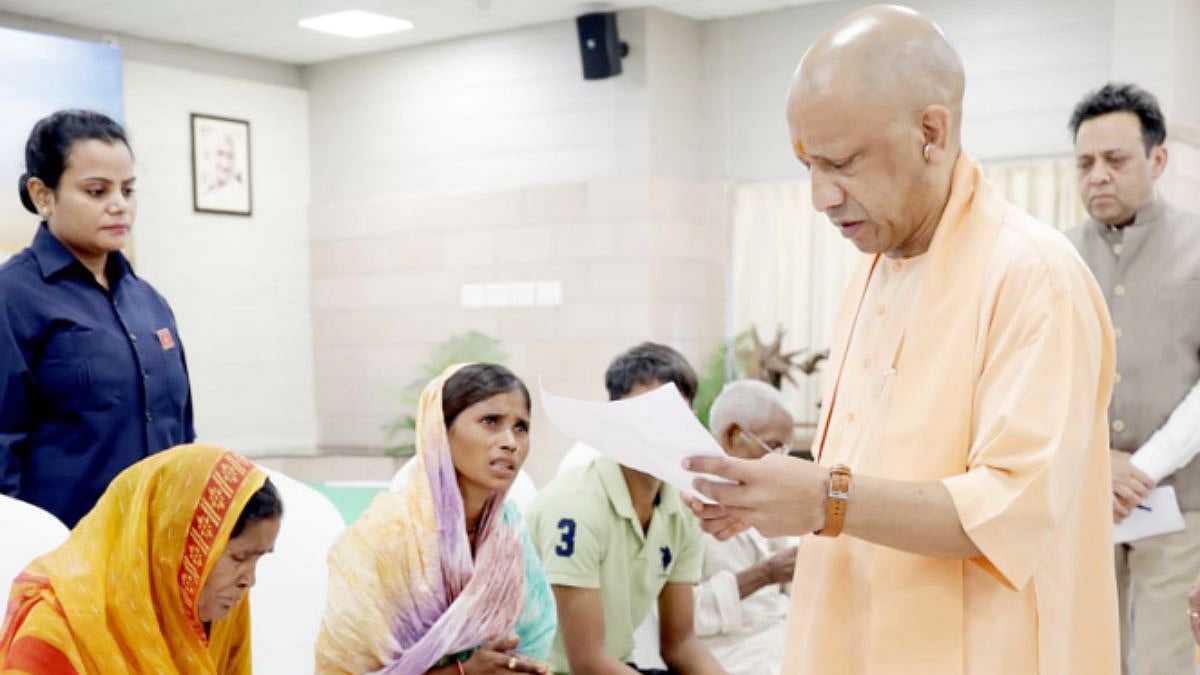I was sleeping in the middle room of the house as was the tradition when we had guests. Guests had my room and I slept on a mattress in the room that is at the center of the house – something that could have been termed as a passage of an urban house in the olden days but was big enough to accommodate a dining table, television, and me on odd days; a maajghar of sorts.
Must have been about five-thirty/six in the morning. Too early to wake up on a Sunday. And I thought I was dreaming… when I heard these notes:
देवो मोहे धीर माई सरसती देवी
तुमरो गुन रटरट दिन जुग बिते
(devo mohe dheer maai sarasati devi, tumro gun ratrat din jug beete)
Unmistakably a Todi. I stirred in the bed thinking who was playing a Kumarji Todi so early… Only to jump-start realising that it was a live show.
Kumarji, who had occupied my room the previous night, had decided to tiptoe around me to the living room and was humming the notes of Raga Todi. He was invoking the Devi Saraswati, goddess of music and wisdom. I got up and kind of crawled into the living room from where the sounds were coming.
Kumarji was sitting with closed eyes, humming… unaware of the rest of the world.
शोक मन मांगे आसिस तोरी
एक बार मोहे आन मिलोरी
(Shok man maange aasis tori, ek bar mohe aan milori)
‘Shok’ was his pen name. The name he chose to create his bandishes with. Why Shok?
Shok means grief in Hindi, Marathi, Malavi, and Sanskrit. Why Shok? Why would anyone choose that name? Why did Kumar Gandharva choose Shok as his pen name?
This question has bothered me for a while now.
All Kumar Gandharva fans are aware that two major mishaps in his life affected him deeply. One, his illness impacted his lungs and he, for the rest of his life, could sing/breathe only at half the capacity. Second, was the death of his first wife Bhanu.
With his sheer grit, Kumarji overcome the illness. He didn't give up on himself or music. He used the time in bed to study Malva ki lok dhun – the folk songs that he heard in his surroundings outside the small house they lived in. He used the time of being confined to bed to cogitate on music at large. He was back in action after a few years and more revered for his work than earlier.
He was well supported by his second wife, Vasundhara Komkali, who was Bhanutai’s best buddy, after the death of his first wife. She helped him by being the strong pillar that took care of the house and family and accompanying him on the tanpura on stage.
Was it possible that he never really got over Bhanutai's death? Did he brush the sorrow under the carpet and moved on… yet carried it somewhere within him and therefore each bandish was a dirge in some way or the other… and Shok expressed that?
It is difficult to find these answers now. And when I could, I was too young to understand the anguish, too young to ask him the question again, when he evaded it once.
Having said that, I do have to admit that his music grew on me as I added years to my life. I learnt to appreciate the nuances he so often spoke about.
He was a creator of many new ragas, and was often criticised for creating unnecessary ‘ragas’. But he, often, had simple explanations. For example, let’s take his Chaiti Bhoop… he added the madhyam to Bhoop and many questioned the necessity. “What can I do?” he said. “The ‘ma’ keeps asking me – can I please come in, please? How can I deny it permission?” The madhyam did add an uncanny melodiousness to the Bhoop while becoming Chaiti Bhoop’s Nimori ka mora hai re…
Kumarji believed that all swar (notes) of a raga held each other’s hands while walking into the raga. But to present the raga one had to understand the relationship between them and their relationship with the words of the bandish. He often said that the same raga sounds different with each bandish because of the way the words and notes talk to each other or behave with each other. “Like humans have a different way of walking at home, outside, in the kitchen, in the bathroom… notes also behave differently with different words… therefore, the way they walk, dance changes… the emphasis on notes changes… sometimes it’s like a caress, sometimes like a slap… the way we come on the ‘sam’ changes… and thus changes the face of the raga… with every bandish.”
He, probably, was the only Hindustani Classical singer who toyed with a lot of forms. His Nirguni bhajans is known widely. But he also presented Marathi natya sangeet differently. He studied the intricacies of the form and then presented a show – Mala Umajlele Bal Gandharva.
His curiosity didn’t end at music. He was curious about life at large and passionate about the smallest thing he did. Be it packing his own bag for a tour or making his signature almond milkshake. He would not just soak the almonds himself, but skin them and grind them too. Every step, every process was done meticulously. Mixing the paste along with his secret spices in the milk (temperature mattered) and presenting it to others…
How can one forget the lunches that he organised in the garden of Dewas house during our Diwali visits? He supervised the smallest thing for the lunch – where to light the fires, which utensils to use, the menu, and which leaves to be cut and used as plates to eat the food. He washed the leaves and later wiped them with the gamcha on his shoulder to ensure that they were clean enough.
The most intriguing thing about him, according to me, was that he was involved in everything and yet detached. “Ud jayega hans akela…” was one his favourite bhajans. He believed in the philosophy it depicted.
(Shruti Pandit is Consulting Editor, Features, The Free Press Journal)









